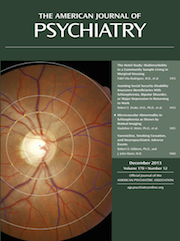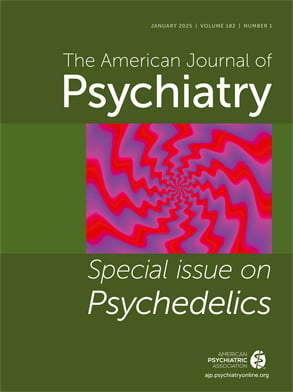Prenatal Genetic Testing With Chromosomal Microarray Analysis Identifies Major Risk Variants for Schizophrenia and Other Later-Onset Disorders
References
Information & Authors
Information
Published In
History
Authors
Competing Interests
Metrics & Citations
Metrics
Citations
Export Citations
If you have the appropriate software installed, you can download article citation data to the citation manager of your choice. Simply select your manager software from the list below and click Download.
For more information or tips please see 'Downloading to a citation manager' in the Help menu.

